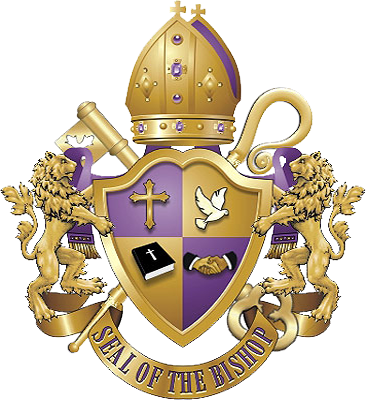The First Bishops of the New Testament
Church: Their Lives and Contributions
Lesson 1.1: Welcome and Course Overview
This course is designed to explore the lives and contributions of the first bishops of the
New Testament Church, individuals who played critical roles in shaping the early
Christian community during a transformative period. In this introductory lesson, we’ll
outline the goals of the course, its structure, and why studying these leaders is crucial
for understanding the development of the early church.
The term "bishop" in the earliest Christian context referred to a leader responsible for
overseeing the spiritual well-being of a community. These individuals were not just
administrators; they were spiritual guides, defenders of the faith, and proponents of
unity within a rapidly growing and often persecuted movement. As Christianity spread in
the decades following Christ’s resurrection, bishops emerged as central figures for
maintaining doctrinal integrity, resolving disputes, and fostering communal identity.
This course begins with Module 1, which provides a foundational understanding of the
early church leaders. In Lesson 1.2, we’ll dive into the historical context surrounding
their lives, exploring the social, political, and religious challenges they navigated. This
context sets the stage for understanding the complex dynamics they faced and their
resilience in leading the church during times of uncertainty.
From Module 2 onward, we’ll shift to focusing on individual leaders, starting with
Clement of Rome. Clement is widely regarded as one of the first apostolic fathers,
meaning he was among the generation of church leaders who directly followed the
apostles. His writings, particularly his letter known as "1 Clement," reveal his dedication
to unity and his efforts to address divisions within the church. Clement’s role as a leader
and mediator highlights the importance of maintaining harmony in the face of internal
challenges, a theme that remains relevant in church leadership today.
Module 3 introduces us to Ignatius of Antioch, whose life and martyrdom provide a
profound example of faith and courage. Ignatius is particularly known for his letters,
written during his journey to Rome, where he faced execution. These writings
emphasize themes of church unity, the role of bishops, and the significance of Christ’s
incarnation and sacrifice. Ignatius’ theology and steadfastness under persecution offer
invaluable insights into the spiritual priorities of the early church.
In Module 4, we’ll examine two figures who made significant theological contributions:
Tertullian of Carthage and Irenaeus of Lyons. Tertullian is often called the father of Latin
Christianity, known for his innovative work in apologetics and his writings on the Trinity.
His ability to articulate and defend Christian doctrine against external criticism was
pivotal in establishing a foundation for systematic theology. Irenaeus, on the other hand,
stands out for his efforts in countering heresies, particularly Gnosticism, through his
work "Against Heresies." His defense of orthodoxy and emphasis on the unity of
scripture helped to solidify early Christian teachings and practices.
Finally, Module 5 focuses on Origen of Alexandria, a figure whose intellectual
contributions profoundly influenced Christian thought. Origen was a theologian and
philosopher who sought to reconcile faith with reason. He produced extensive writings,
including commentaries on scripture and treatises on theological topics. Although some
of his ideas were controversial, his contributions to biblical interpretation and his
emphasis on the spiritual meaning of scripture shaped the development of Christian
theology for centuries.
Throughout this course, we will explore the lives, teachings, and legacies of these
significant figures. Their stories are not only historical accounts but also lessons in faith,
leadership, and perseverance. By studying them, we gain valuable insights into the
foundations of Christian doctrine and the challenges of guiding a community through
adversity.
In conclusion, understanding the lives and contributions of the first bishops of the New
Testament Church allows us to appreciate the profound impact of their leadership on
Christianity’s development. These early leaders faced social, political, and doctrinal
challenges yet remained steadfast in their commitment to the faith. Their efforts to unify
communities, defend orthodoxy, and articulate theological principles provided the
groundwork for the church we know today. As we progress through this course, we will
uncover the ways their lives and writings continue to inform and inspire Christian
thought and practice. Let’s begin our journey into the past to discover the enduring
legacy of these remarkable individuals.

Comments are closed.